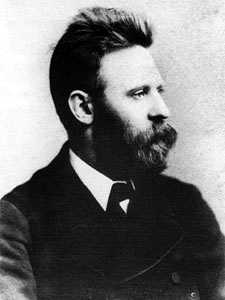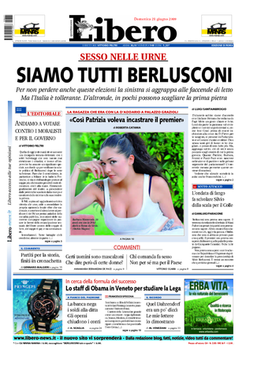Related Research Articles
Freedom is a London-based anarchist website and biannual journal published by Freedom Press which was formerly either a monthly, a fortnightly or a weekly newspaper.

Freedom Press is an anarchist publishing house and bookseller in Whitechapel, London, United Kingdom, founded in 1886.

Kōtoku Denjirō, better known by the pen name Kōtoku Shūsui , was a Japanese socialist and anarchist who played a leading role in introducing anarchism to Japan in the early 20th century. Historian John Crump described him as "the most famous socialist in Japan".
Ha Ki-Rak was a professor and major figure in Korean anarchism.

Johann Joseph "Hans" Most was a German-American Social Democratic and then anarchist politician, newspaper editor, and orator. He is credited with popularizing the concept of "propaganda of the deed". His grandson was Boston Celtics radio play-by-play man Johnny Most.

Anarchy was an anarchist monthly magazine produced in London from March 1961 until December 1970. It was published by Freedom Press and edited by its founder, Colin Ward with cover art on many issues by Rufus Segar. The magazine included articles on anarchism and reflections on current events from an anarchist perspective, e.g. workers control, criminology, squatting.
Anarchism in the United States began in the mid-19th century and started to grow in influence as it entered the American labor movements, growing an anarcho-communist current as well as gaining notoriety for violent propaganda of the deed and campaigning for diverse social reforms in the early 20th century. By around the start of the 20th century, the heyday of individualist anarchism had passed and anarcho-communism and other social anarchist currents emerged as the dominant anarchist tendency.
Max Baginski was a German-American anarchist revolutionary.
Libertarianism is a political philosophy that upholds liberty as a core value. Libertarians seek to maximize autonomy and political freedom, and minimize the state's encroachment on and violations of individual liberties; emphasizing the rule of law, pluralism, cosmopolitanism, cooperation, civil and political rights, bodily autonomy, free association, free trade, freedom of expression, freedom of choice, freedom of movement, individualism, and voluntary association. Libertarians are often skeptical of or opposed to authority, state power, warfare, militarism and nationalism, but some libertarians diverge on the scope of their opposition to existing economic and political systems. Various schools of Libertarian thought offer a range of views regarding the legitimate functions of state and private power, often calling for the restriction or dissolution of coercive social institutions. Different categorizations have been used to distinguish various forms of Libertarianism. Scholars distinguish libertarian views on the nature of property and capital, usually along left–right or socialist–capitalist lines. Libertarians of various schools were influenced by liberal ideas.
The following outline is provided as an overview of and topical guide to anarchism, generally defined as the political philosophy which holds the state to be undesirable, unnecessary and harmful, or alternatively as opposing authority and hierarchical organization in the conduct of human relations. Proponents of anarchism, known as anarchists, advocate stateless societies or non-hierarchical voluntary associations.
Anarchism in Japan began to emerge in the late 19th and early 20th centuries, as Western anarchist literature began to be translated into Japanese. It existed throughout the 20th century in various forms, despite repression by the state that became particularly harsh during the two world wars, and it reached its height in the 1920s with organisations such as Kokuren and Zenkoku Jiren.

Libero, known also as Libero Quotidiano, is an Italian newspaper published in Milan, Italy.
Egoist anarchism or anarcho-egoism, often shortened as simply egoism, is a school of anarchist thought that originated in the philosophy of Max Stirner, a 19th-century philosopher whose "name appears with familiar regularity in historically orientated surveys of anarchist thought as one of the earliest and best known exponents of individualist anarchism".

Golos Truda was a Russian-language anarchist newspaper. Founded by working-class Russian expatriates in New York City in 1911, Golos Truda shifted to Petrograd during the Russian Revolution in 1917, when its editors took advantage of the general amnesty and right of return for political dissidents. There, the paper integrated itself into the anarchist labour movement, pronounced the necessity of a social revolution of and by the workers, and situated itself in opposition to the myriad of other left-wing movements.

Freie Arbeiter Stimme was a Yiddish-language anarchist newspaper published from New York City's Lower East Side between 1890 and 1977. It was among the world's longest running anarchist journals, and the primary organ of the Jewish anarchist movement in the United States; at the time that it ceased publication it was the world's oldest Yiddish newspaper. Historian of anarchism Paul Avrich described the paper as playing a vital role in Jewish–American labor history and upholding a high literary standard, having published the most lauded writers and poets in Yiddish radicalism. The paper's editors were major figures in the Jewish–American anarchist movement: David Edelstadt, Saul Yanovsky, Joseph Cohen, Hillel Solotaroff, Roman Lewis, and Moshe Katz.

The Finnish Anarchist Association was an organization of Finnish anarchists that was founded in the second half of the 1980s and was active for about a decade. At the turn of the 1990s, the SAL was part of the International Workers' Association (IWA), an anarcho-syndicalist coalition that had existed since 1922. SAL was the first nationwide anarchist organization in Finland.
Anarchism in Hong Kong emerged as part of the Chinese anarchist movement, when many anarchists sought refuge from the Qing Empire in the territory. It grew alongside the Chinese revolutionary movement, before the territory again became a safe haven for anarchists, following the Communist victory in the Chinese Civil War. Since then anarchists have formed a part of the Hong Kong opposition movement, first to British colonial rule and then to the rising authoritarianism of the Government of Hong Kong.
References
- 1 2 3 "Libero International". Libcom. Retrieved 24 April 2016.